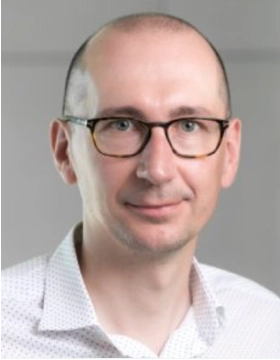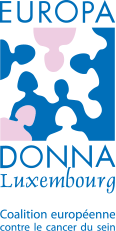Project 20 interviews
«Professionals speak about their daily work and their missions»
Interview with Dr Daniel Stieber, molecular biologist and head of the Molecular Genetics Unit at the National Genetics Centre at the National Health Laboratory.
Dr Daniel Stieber is a molecular biologist and head of the Molecular Genetics Unit at the National Genetics Centre at the National Health Laboratory. His team analyses DNA * for disease-causing genetic mutations.
Cancer is always a disease of the genome due to an accumulation of genetic mutations. Often, these mutations can occur sporadically, by chance (the mechanism of DNA copying during cell reproduction is not completely perfect, so copying errors can occur). Sometimes mutations are present constitutionally, in all the cells of the body, which can lead to a higher probability of developing cancer, a hereditary predisposition to cancer.
There are environmental factors that bring about the formation of mutations and can therefore lead to cancer. The best known of these are UV rays, which can cause skin cancer, and smoking, which can cause lung cancer.
In the case of breast cancer, a majority of cancers are sporadic, due to mutations acquired during life. Unlike the types of cancer mentioned above, there are no environmental factors clearly associated with mutagenesis in breast cancer. However, various factors can affect the lifetime risk of developing breast cancer. These include alcohol consumption, obesity or reproductive history. Sporadic cancers usually occur later in life (>50).
A minority (+/- 15%) of breast cancers are familial or hereditary: due to inherited genetic mutations. The best-known mutated genes in this context are BRCA1 and BRCA2, but other cancer predisposition genes exist. Inherited cases of breast cancer are often characterized by familial aggregation and are usually of earlier onset.
Genetic mutations in cancer predisposition genes (such as BRCA1 and BRCA2) considerably increase the probability of developing breast cancer (lifetime risk of breast cancer by 50-80%). However, this is not completely deterministic, there are carriers of these mutations who will never develop cancer (in genetics this is called incomplete penetrance). In addition, in BRCA1 and BRCA2 mutation carries, the risk of developing other forms of cancer is also increased (e.g., 20-40% risk of developing ovarian cancer, increased risk of prostate and pancreatic cancer).
If there is a clinical suspicion of a hereditary cancer situation, an oncogenetic consultation is advisable. During this consultation, doctors specialized in human genetics will carry out a thorough family history and, if indicated, will propose a molecular genetic analysis (based on a blood sample). The results of this analysis will then be discussed in a second dedicated consultation. If a deleterious mutation in a cancer predisposition gene is found, genetic testing for this mutation may be offered to relatives at risk. Risk reduction actions such as regular breast screening (by MRI) or preventive surgery will also be discussed and implemented according to the guidelines.
In addition, it should be noted that genetic analysis of tumour tissue (e.g., obtained by biopsy) is increasingly used to determine whether specific mutations exist in a given tumour. These mutations can then be targeted by drugs that act directly on these mutations. In this context, we speak of targeted therapy as part of a personalized medicine approach.

A personal message from Dr Daniel Stieber:
1. Be aware of early forms of breast cancer or a family context that suggests a familial aggregation of cancer. Do not hesitate to discuss this subject with your gynaecologist or oncologist. Consultation with a medical specialist in genetics can be of great help in such a scenario.
2. Genetics is of increasing importance in the context of in-depth molecular analysis of tumours and personalized medicine. More and more cancer therapies are being targeted to specific genetic alterations in the tumour and will allow for improved patient management in the future.
Thank you very much Dr. Stieber for the interview and for your vital work in the fight against cancer.
* DNA Definition doctissimo: Deoxyribonucleic acid or DNA is the chemical compound that makes up the chromosomes in the nucleus of a cell. It is responsible for the transmission of characteristics from one generation to the next, i.e., heredity. DNA carries the genetic information necessary for all cellular functions, including protein synthesis. It is made up of sugar (deoxyribose), phosphate and the following four bases that make up the “genetic alphabet”: adenine (A), cytosine (C), thymine (T) and guanine (G).
The interview was conducted by Ms. Françoise Hetto-Gaasch, member of the committee of Europa Donna Luxembourg.
Europa Donna Luxembourg Asbl
1b rue Thomas Edison L-1445 Strassen
Tél. : 621 47 83 94
E-mail : europadonna@pt.lu
